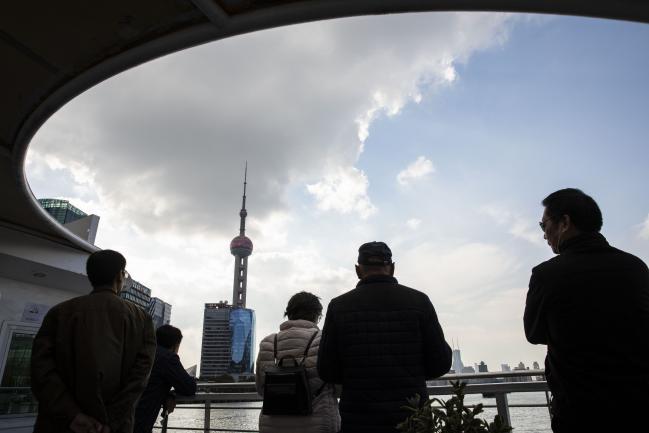Nucor earnings beat by $0.08, revenue fell short of estimates
(Bloomberg) -- China’s economy continued to weaken in July, bolstering the case for greater policy support to shore up growth as talks over the trade dispute with the U.S continue.
The slowdown is seen in a Bloomberg Economics gauge aggregating the earliest available indicators on market sentiment and business conditions. While China and the U.S. will resume in-person negotiations this week after an almost three-month hiatus, small firms’ worries about business have deepened, a measure of exports is getting worse, and decelerating producer prices continue to squeeze profits.
China’s growth rate is on a long-term slowdown as the economy matures, but with trade and company profits shrinking and investment growth weak, the immediate outlook for the economy is still a source of concern for policy makers. While the resumption of talks with the U.S. renews some hope of a deal, deep divisions remain between the two sides.
“Trade disputes are still a key risk to both Chinese and other major economies,” according to David Qu from Bloomberg Economics. “Producer prices are under pressure, as material prices may be influenced by the concerns about trade, and as we see in the PMI surveys, domestic confidence is still subdued.”
The official purchasing managers’ surveys for this month are due for release on July 31.
The outlook for export-oriented small business eased in July, and an index gauging conditions for small companies slowed to the weakest in more than three years, with overall demand subdued and investment appetite down, according to economists from Standard Chartered (LON:STAN) Plc.
“We expect exporters to remain cautious on production and investment prospects, given weakening external demand on sluggish global growth and the protracted trade friction with the U.S.,” Standard Chartered economists Shen Lan and Ding Shuang wrote in a note.
Outbound shipments from South Korea also suggested weaker demand from overseas. Their exports fell 13.6% in the first 20 days of July from a year earlier, indicating shrinking demand for components from Chinese assemblers of electronics such as iPhones. Conditions reported by sales managers also weakened in the month due to low business confidence, especially in manufacturing, according to London-based World Economics Ltd.
Markets are anxiously looking for signals of any escalating policy support, with some expecting an announcement from the meeting of top-ranking leaders that’s due to happen soon in Beijing. However, the uncertainty of what will happen with the U.S. may mean that any action is limited for now. Policy makers have also stressed their commitment to moderate, targeted stimulus measures in order to avoid inflating asset prices.
“China’s second-half economic outlook continues to be clouded by great uncertainty over trade relations with the U.S., which in turn constrains its policy responses,” Liu Li-gang, chief China economist at Citigroup Inc (NYSE:C). in Hong Kong, wrote in a note. “Policy easing will continue, but any stimulus will be restrained to leave fiscal head-room if U.S.-China trade tensions re-escalate.”
To contact Bloomberg News staff for this story: Yinan Zhao in Beijing at yzhao300@bloomberg.net;Adrian Leung in Hong Kong at aleung206@bloomberg.net
To contact the editors responsible for this story: Jeffrey Black at jblack25@bloomberg.net, James Mayger
©2019 Bloomberg L.P.
